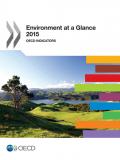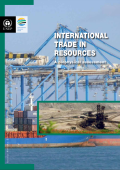Over the past 30 years, China has developed rapidly to become the world’s second largest economy, reaching the status of a middle-income country. Realizing this success, however, has involved a development approach entailing massive and inefficient resource use, and extensive damage to the quality of air, water and soil. Transforming from a resource- and pollution-intensive economy to a green economy is now a strategic priority for China. Success depends on the development of green industries and the transformation and reduced importance of many traditional industries. Success will be built heavily on green finance, and this is where China is headed.
The aim of this book is to develop specific proposals for greening China’s financial system, based on an analysis of current practice in China and an exchange of experience with international experts. The book proposes a framework for actions covering five key areas that, if adopted by the Chinese government, would promote the systematic development of green finance:
A. Establish and strengthen legal frameworks, including environmental laws and law enforcement that contribute to the demand for green finance.

Environment at a Glance 2015 updates key environmental indicators and relevant socio-economic and sectoral indicators to track OECD country progress on major environmental issues and inform policy development and evaluation. This year's edition includes increased coverage of environmentally related taxation, ODA and R&D expenditure.

This report is an exploration of the role of international trade in increasing resource efficiency, reducing environmental impact and promoting equitable and inclusive growth. The value of international trade has increased over six-fold and its volume more than doubled between 1980 and 2010. This report examines upstream resource requirements - the materials, energy, land and water used in the country of origin for producing traded goods, but left behind as wastes and emissions. It focuses more on environmental efficiency than on economic efficiency, and explains how trade could be resource efficient by allowing commodities to be obtained from countries/locations where their production requires fewer resources and generates fewer environmental impacts than in others. However, as the publication underlines, higher trade levels, declining ore grades and decreasing energy returns upon energy investment, higher food demand and diminishing land productivity further increase the upstream resource requirements of trade, which could negate the benefits of a potentially more resource efficient allocation of extraction and production activities via world trade.
Promoting green growth requires well-designed institutions and environmental policy instruments that are effective in achieving their environmental objectives without imposing excessive burdens on the economy. There is growing recognition in OECD countries that economic instruments such as environmentally related taxes can be effective in stimulating a shift to less-damaging forms of production and consumption while providing producers and consumers with flexibility in making these adjustments. Behavioural changes stimulated by economic instruments may lead to the creation of new jobs and employment opportunities. Investments in new "cleaner" technology can be an important source of employment and business development. Where economic instruments generate revenues, the appropriate deployment of these revenues can also make a significant contribution to enhancing incomes and growth.
